Recently, Iceberg Interactive has announced they have partnered with Rhombus Studios to help bring Lord of Rigel a turn-based with real-time tactical combat 4X space strategy game to the 4X community. You can read our SIV article for the game to get a quick overview. We decided to reach out to the developers at Rhombus to answer some of our questions to get a better understanding of what their game will feature. James Rorabaugh, one of the lead designers and co-founder of Rhombus Studios, was kind enough to answer our questions.
SS: Why have you decided to develop Lord of Rigel and what are you hoping to bring to fans of the genre?
James Rorabaugh: Lord of Rigel started as a conversation between me and the co-founder of Rhombus Studios. At that time, we were just two gamers talking about the good, the bad, and the ugly of 4x games and what features worked and didn’t; and what things we would do if we actually made a game. After a few hours of intense conversation, a basic framework for a game began to emerge. Just after coming up with a name for this game, we looked at each other and said “We should do this.” That was in the spring of 2014. Even with the games that have come out since then or ones on the horizon, we still see Lord of Rigel as taking a unique direction compared to what else is out there.
Our main goal with Lord of Rigel is to transport players into a universe with lore and gameplay that make players feel like they are a part of that universe. We have focused heavily on having lore based on elder races, galactic politics, and allowing for a variety of victory conditions. The other elements such as grand menaces, a strong espionage system, real time ship combat, and etc. all are vehicles to immerse players in a politically complex universe that represents the player with challenges as an upstart race that just acquired faster than light travel.
SS: You mentioned the game is heavily inspired from MOO and there seems to be many mechanics that are heavily based off of it, which mechanics remain close to that series?
James: Three systems in Lord of Rigel that are influenced by the Master of Orion series and in particular Master of Orion 2 are the colony management, ship designer and ground combat systems. All three systems we felt provide the best design and provided us a base to work from.
In particular, one of the things that I loved about Master of Orion 2 when I was a kid was the colony view. It really helped me imagine what my colonies looked like and tied me to their success or failure. We have continued that design with Lord of Rigel.
There are some modern 4x games that are going towards the placing of individual pieces of ships rather than simply picking equipment and features. We felt that the leader of an empire wouldn’t spend time worrying about what box or space each piece of equipment would occupy. Instead we wanted players to work on a higher level and felt that that this still allowed players to design the ships they wanted to use in combat.
Finally, the ground combat system is something else that we have kept in a similar vein to Master of Orion 2. Its system was simple enough to show the combat, but not bog down the game in having players engage in two battles to take a single planet. We’ve enhanced this system by having bonuses tied to how well you performed in combat. Overwhelm a core planet and you have a higher chance of unlocking technologies and morale bonuses for occupation.
SS: Aside from MOO what other games do you think have helped inspire you to make Lord of Rigel, or what other games have had an impact on your design choices?
James: Some of the other game series that have inspired Lord of Rigel are Sword of the Stars, Civilization, and Total War. Total War and Sword of the Stars have particularly influenced how we’ve approached tactical combat for spaceships. Interface wise Endless Space and Endless Legend have been an inspiration in displaying data without feeling like a spreadsheet.
SS: What do you think will appeal to old time fans of the genre while playing Lord of Rigel?
James: I think Lord of Rigel definitely has design elements and a feel of older 4x games. I think those design cues will give players a familiar feel when playing the game. I also think that a lot of our mechanics go back to the older 4x games and try to expand on them rather than rewriting the book on 4x games. We have been careful to not overreach with this game but rather build a stable base game that could be expanded upon in future DLCs, expansions, etc. That doesn’t mean that we are jumping into a DeLorean and going back to 1985, but it does mean that we are careful to make sure that any additions made to the game play well and don’t end of being one of those good in theory and bad in practice sort of features.
SS: Now for potential new players or modern 4X fans that never got to play the classics, what do you hope will appeal to them?
James: Often times a big inhibitor to players getting into 4x games is a neurotic AI and events that are going on around you that seem to come out of nowhere. We have spent a lot of time trying to make sure that the UI system is intuitive and, more importantly, that the stats that are driving the game are clearly laid out to players with tooltips.
We also think the real time space combat will be a big draw to for new players. Turn based strategy certainly appeals to long time 4x fans and our team is certainly a part of that group. However real-time strategy brings in that extra element of “cool” to a space battle. Everyone likes blowing space ships up and some of the greatest visual moments in sci-fi have been massive battles that pull the viewer in. Real time combat will help players visualize the massive world they are in. Quite a few recent games have emphasized “cinematic” tactical combat where player involvement is rather minimal. Having a fun tactical system where player actions such as targeting subsystems, clever formation use, and positioning can all change a battle are what we’re aiming for.
SS: We recently heard you decided to have real-time tactical battles. Can you go into details why you decided to shift combat to real-time?
James: We have felt that one of the strengths in a turn based combat approach was that for all of its inherent flaws, players could take as much time as they wanted to plan out their moves. The system, then, would reward players who took the time to plan out their moves and utilize strategy and tactics. We tried with numerous features in the initial tactical system to overcome some of the flaws in turn based combat including long AI turns (game pace) and a lack of realism that comes from having objects remain stationary until moving (like a chess board).
Our main concern with real time combat has been that many games sacrifice game speed for tactics. Players often feel rushed because the clock is constantly ticking. After some discussions, we thought of a system that could allow for real time combat, but the player could pause to plan out moves and orders for their fleet. We are calling this “Commander Mode” and it can be pressed at any point in combat to slow things down and allow players to scan ships and give out any orders and then jump back into real time. The system conceptually is somewhat similar to VATs in the Fallout series.
With that big real time issue fixed, we think that we have great graphics and we are currently working on scaling our ships to make them work in game at their modeled sizes. Some of the ships are massive, coming in at 16 km or more vs small frigates that are only a couple hundred meters or so. But combine scaled ships with some great graphics, Commander Mode, and real time gameplay and you have a recipe for an immersive combat experience.
SS: Another big question we tend to have is how are you handling space travel? What mechanics are you using? What options are available that expands on (or even restricts) the travel mechanics?
James: Space travel currently is limited to one technology type: warp technology. For the lore in our universe it made sense to have a single technology that all of the younger races use. We have discussed and it is still a possibility that we may include other faster than light travel that includes sub-light, jump technology, and some sort of technology that requires structures to be assembled to gain FTL access. We are looking into ways to fit these type of techs into the game with rewards that would make them temping for players to research beyond the initial warp technology.
While we’re focusing on warp, space terrain and infrastructure are important. Nebulas, neutron stars, and black holes all affect warp travel. Building warp conduits speeds up travel between colonies and star gates can make travel instantaneous. Overall this opens more strategic options than the starlanes or node based travel that has become a trend in some recent titles.
SS: Can you tell us how technology is handled in Lord of Rigel?
James: Technology will be handled via a tech tree that is fully researchable. There are species traits that will allow players to receive all the technology in a specific category, choose which one they want, or have it randomly selected for them. Along with the tech tree, the elder species also have unique technologies that can be acquired but it will be difficult.
SS: What do you think the game brings to the genre then? Is there anything new or unique that you think stands out to set your game apart from the others?
James: Lord of Rigel will bring galactic politics to the table and really get players involved in trying to work with other races, choose sides or exterminate others. Most 4x games focus on the exterminate point and more often than not exterminating everyone else without the need for allies. We hope that our system will force players to interact with the AI beyond finding new and improved ways to kill them and we think our Galactic Council and Elder races will be a big part of that.
Additionally, we have focused a lot in our game design on late game and overall game pace. We really hope to be able to bring a 4x game to the table where players even near the end of the game are still hit by surprises and aren’t just in cleanup mode. We have some mechanics like grand menaces and the Elder races that should bring some good challenges to the player in late game.
SS: So what can you share with us about your diplomacy and espionage system?
James: Our diplomacy system will be about forming coalitions. We have a universe where a large power struggle is in play. The players will be confronted with making diplomatic decisions that will affect their place with other species and into what power block they fit into for each of the Elder races. Additionally, we are aiming to provide personalities to each species that can clearly be shown in the UI so that players can understand the AI and how to best move forward with them. Grand menaces will also provide reason for the players to try and work with other species to take out these threats and build friendships based on a common enemy.
The espionage system for Lord of Rigel rewards players who use it. Players can do a variety of missions that will help them assassinate enemy leaders, incite rebellion, destroy key infrastructure, and steal enemy technology. From these mission types players can choose to use their spy network to wreak havoc on their enemies and, in the case of killing enemy leaders, can look to try and make a new ally if the new leader is more favorable to the player’s empire.
SS: What are the victory conditions and the different paths the player has to winning the game?
James: The game will have diplomatic, military and research based victory conditions. Through the Galactic Council, players can try to gain favor with the other species and force the elder species to essentially leave the galaxy for the younger races. Military victory is the most familiar victory type, which will let the player either on their own or with allies destroy all species that are not part of their alliance or if they choose to go it alone to kill all of the other races. Our research victory condition is technology that gives the races who discovers a massive evolutionary leap making them into an elder species of sorts. With that technology they can choose to leave the galaxy and all the problems that it has behind. Ascension does require having dyson spheres to enable to process, which means either having to control Rigel at the center of the galaxy, or secure worlds with the resources to build your own.
SS: Sometimes 4X can get notorious in the late to end game as it feels the game becomes more of a grind, how have you addressed this?
James: As you have pointed out late game is a tough one with 4x games. You kind of hit the top of the mountain and everything begins to snow ball from there. What we have done to compensate for this is provide elder races and grand menaces that are truly menacing. When it becomes apparent that the elder races can’t win against the player or if one elder race feels that they can defeat the other, they will start a massive war with all species in the game that are allied with the opposing elder species. That combat will be massive as planets and whole star systems will be blown apart and there is the potential for most of the galaxy to be at war and until either one side wins or the player researches ascension technology.
Grand menaces will also throw some late game surprises and be based on how well the player is doing. Don’t be surprised to be hit with von Neumann probes or a Borg like species. These grand menaces are designed to wipe your species and force the player to adjust their tactics to either work with other species or rework their civilization to be on the defensive to these massive threats.
SS: I have to ask, are there any doomsday weapons like planet/star killers or anything else that would fall under the realm of fantastical end-game technologies?
James: There is the usual array of doomsday weapons a 4x player would be expecting. Every game has its “nuclear options.” In Lord of Rigel we try to treat them that way as well. Players through the use of advanced research and strategic resources can build advanced weaponry that will let them irradiate entire star systems if they so choose. However, one thing that we have tried to do similar to what has been done in the Civilization series is penalize players for these actions and make them something used solely when the player either clearly doesn’t care about the penalties associated with the use of the weapons or it is their only option left to survive a conflict.
SS: Lastly, I noticed many Babylon 5 references along with the concept of two elder races waging a cold war. Can you tell us why you went down this path and what are other sources of science fiction you used in designing the theme and gameplay of Lord of Rigel?
James Rorabaugh: Babylon 5 setup a fantastic universe where all species whether big or small were intertwined and had a unique role and story to tell. Not many popular sci-fi universes do this. Popular sci-fi like Star Trek and Star Wars allude to other races being “important” but the stories are often told from the perspective of human protagonists. The Federation, while it consists of hundreds of worlds, is often told through Human eyes. With Lord of Rigel we wanted to create a universe where all of the species could have an equal footing and place as well as bring out a sense of community that is often lacking in other 4x games. In other games, the other factions exist, but players most often only deal with them on a superficial level and can typically bypass diplomacy and move on to wiping them out. In Lord of Rigel conquest is an option, but we want to bring out more of a feeling of there being a galactic community and consequences for actions.
The elder species also gave us a chance to create some lore that plays on that Babylon 5 setup as well as 2001: A Space Odyssey with the concept of elder races uplifting younger ones. This is where the player begins in Lord of Rigel – as one of the younger races that has been uplifted and is now trying to find their way in a galaxy that has been divided by a long cold war that is turning hot. One of the earliest “space operas” EE “Doc” Smith’s Lensman series is also where the idea of two opposing elder species comes from. Both of our elder species have very opposed goals, but view themselves as clearly in the right.
The species design in Lord of Rigel draws on numerous sci-fi classics. A great example of this is the Katraxi, which are a cross between the Wing Commander Kilrathi, the Kzin from Known Space that they’re based on, and Star Trek’s Klingons. We purposefully tried to draw on classic sci-fi characters because we wanted our species to be relatable to characters and draw them in.
SS: Thank you for your time and good luck with the development of the game.
We will keep you informed about future developments on Lord of Rigel. The only information we have now about its release is that the game will be available on Steam in Q4 2016 (it’s not confirmed if this is an Early Access estimate or a final release estimate). Till then you can visit their official website for more information about Lord of Rigel.
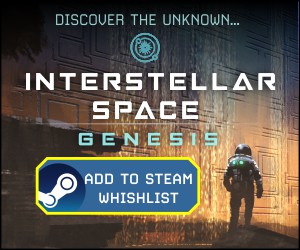
14 Comments
Related Articles:
- Stellar Indie Venture: Lord of Rigel
- Colonia: A Single Star System Space 4X/RTS [Kickstarter]
- Sword of the Stars 2: Lords of Winter Q&A – Gamespot Interview
- Horizon – A New Turn-Based Space Strategy Game Under Development
- A New Way to Explore Planets

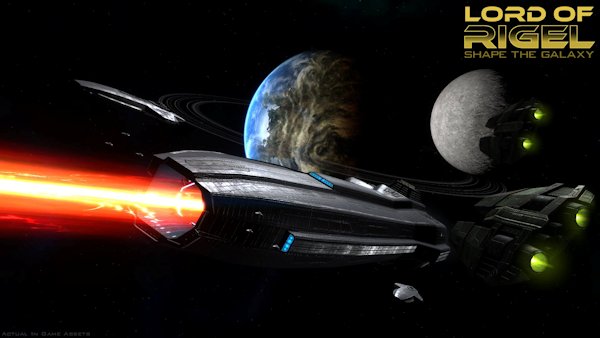
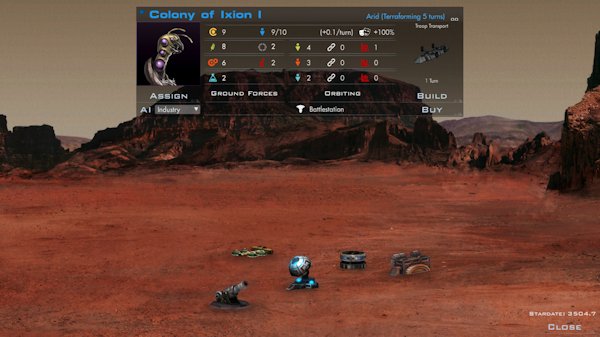
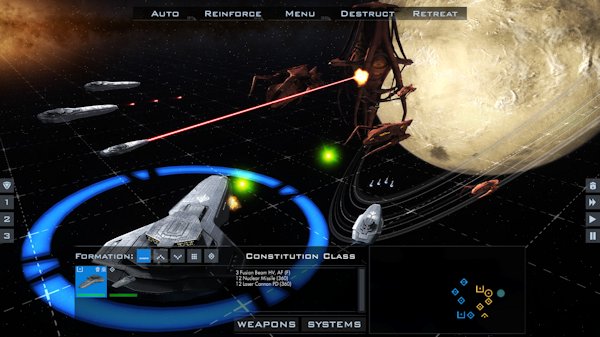
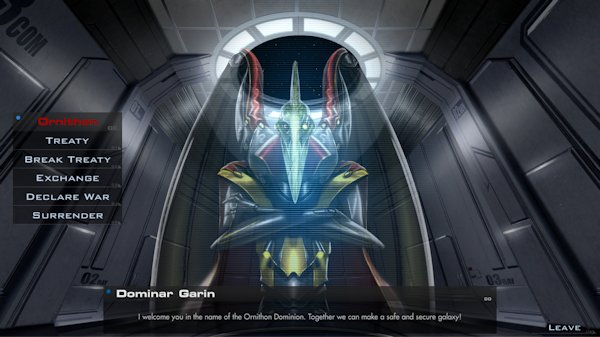
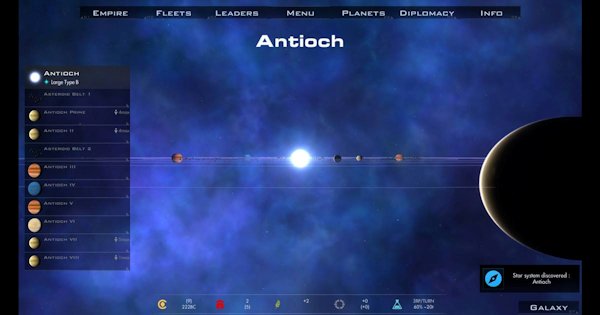
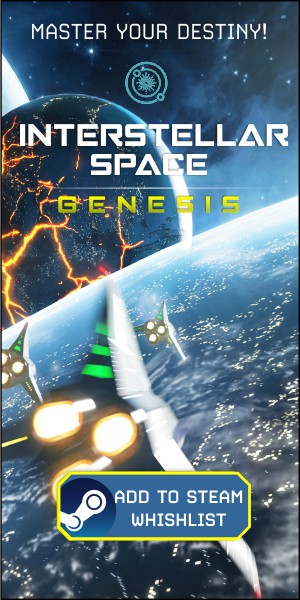
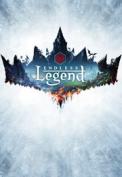

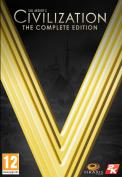


This is a heck of a year for Space 4X games!
Oh, and as long as the RTS ship combat is pausable, I’ll keep this game on my radar :)
We have some ideas on how to make real time ship combat work for those who enjoy turn based combat!
I love deep, hands-on, thought provoking TB combat (which is hardly ever seen in modern 4x games) so if you can make this work I will be eternally grateful. :)
I’m always up for a good 4X game, but do we really need another game modeled on a dog’s breakfast of MoO2, Sword of the Stars, Endless Space, Civilization and Total Wars? What is new or unique that Lord of Rigel brings to the table?
A new approach, rather than just a mish-mash of old titles, would be appreciated by this gamer.
While I agree with you, it seems that every game that tries to stray too far from the 4X mainstays seem to not do well. Of course, this is just my opinion. The last universally (no pun intended) praised game that I can remember offhand is Distant Worlds…and that was after some expansions.
At this rate, MMOs and MOBAs can claim to have more innovations than the 4X space genre.
Can you imagine in 2016 a new MMO or MOBA trying to hype itself by claiming it is trying to be ‘faithful’ to WOW or DOTA? Gamers will slap dead-on-arrival on that title before the first twitter release. Yet, ‘inspired’ by MOO is still the gold standard for 4X and every screen shot I see seems to be a re-skin of a 90s game.
It’s boggles the mind how archaic some of the systems we are stuck with since CIV I. If I have to manually build another colony ship to colonize a new world, I’d starve my home world just to cleanse the galactic gene pool of my race’s incompetence.
Allow automated colonization. Allow multi-ship construction per planet (thanks SOTS). Static, visible tech trees? In 2016?! Stop using the grid system from a city building game on a PLANET. Planetary improvements should not look and sound and function like city improvements. Make SPACE more mysterious with flavor text instead of just resource nodes dotted on a blank black void (thanks Stellar, Endless). A cooler/realistic depiction of planetary invasion. RTS or TB, we need SOTS II level ship combat with complexity instead of Starcraft in Space.
Most of all, make a game we’ll find interesting to play instead of trying to make lightning hit twice by aping some 90s game.
I agree. We need a new unique feature. Not a copy of MOO2 idea.
Plus, when I read the tittle “Lord of Rigel”, my first assumption was a kind of the old Star Lord game that i played in ’90. A Crusader King 2 in Space game. Not another MOO model 4x Game.
Some really interesting and exciting ideas here. The only thing I’ve seen that worries me is the following quote….
“We felt that the leader of an empire wouldn’t spend time worrying about what box or space each piece of equipment would occupy.”
Now I really dont care about assembling ships box by box but I definitely hope this game doesn’t subscribe too much to the “Only stuff the emperor would do” school of 4x design which seems to be becoming distressingly common.
Activities the player can focus on in the game should be chosen for whether they make for a FUN GAME, not for whether they are things an emperor would do.
A lot of stuff that emperors do is actually pretty boring and political. I want to play a fun 4x game where I get to do lots of cool, enjoyable things that an emperor would *never* do as *well* as things an emperor would do. Please dont neuter the game by forcing it to become a strict, dedicated emperor-simulator rather than a good, fun GAME.
Mark,
Fear not on the emperor statement. The point I was trying to make with that statement is that we didn’t feel that the slow process and tedious process of trying to sort out each box of a ship. It just didn’t feel like something the player should be worrying about in a 4x game, rather a game focused on purely ship combat would be more suitable for the system.
We have tried to walk the fine line between micromanaging (which we feel that the box placement of items in the ship designer would be) vs macro-management where the player doesn’t feel attached to anything but stat sheets. So yes we are definitely focusing on designing a “fun game.” If not then whats the point? :)
Or the Developer could answer it now, rending my response moot. ;) I am still going to keep it there, for the sake of posterity. :)
Definitely agree about the ship boxes, but some devs do seem to have a rather bizarre obsession with creating a strict “emperor simulator” no matter what the cost to fun, so its very encouraging to hear that you are more focused on creating a fun, well-rounded game.
I look forward to seeing how LOR progresses, it really seems to have some fascinating design concepts. Love the Bab5’esque elder races. Love the fact that you are taking some inspiration from SOTS. There are some really amazing ideas in SOTS that were never implemented particularly well and are just waiting to be mined and implemented properly. Good luck and I will most certainly stay tuned.
I got the impression they meant they are going for a more MOO2 like approach for ship design rather than going with what we saw in StarDrive 1-2 and Polaris Sector.
I get your concern about imposing that restrictive school of thought for making design choices, but I didn’t get the impression they meant that as a general design philosophy.
Well, only time will tell in the end.
Edward,
You read my comments per my intent. :)
Has some ideas that were already inside the famous Imperium Galactica 2, remember that it was made in 1999: it had 3D planetary building & management; 3D space battles, Components/ship design, Diplomacy, GREAT Espionnage system (agents could level up either by counterespionnage/paid training lvls or special missions (from sabotaging a ship or building or tank to instill revolts & political assassination)), starmap, Research…
I sure hope they can improve on what was made back then. Still waiting for a game like this one.